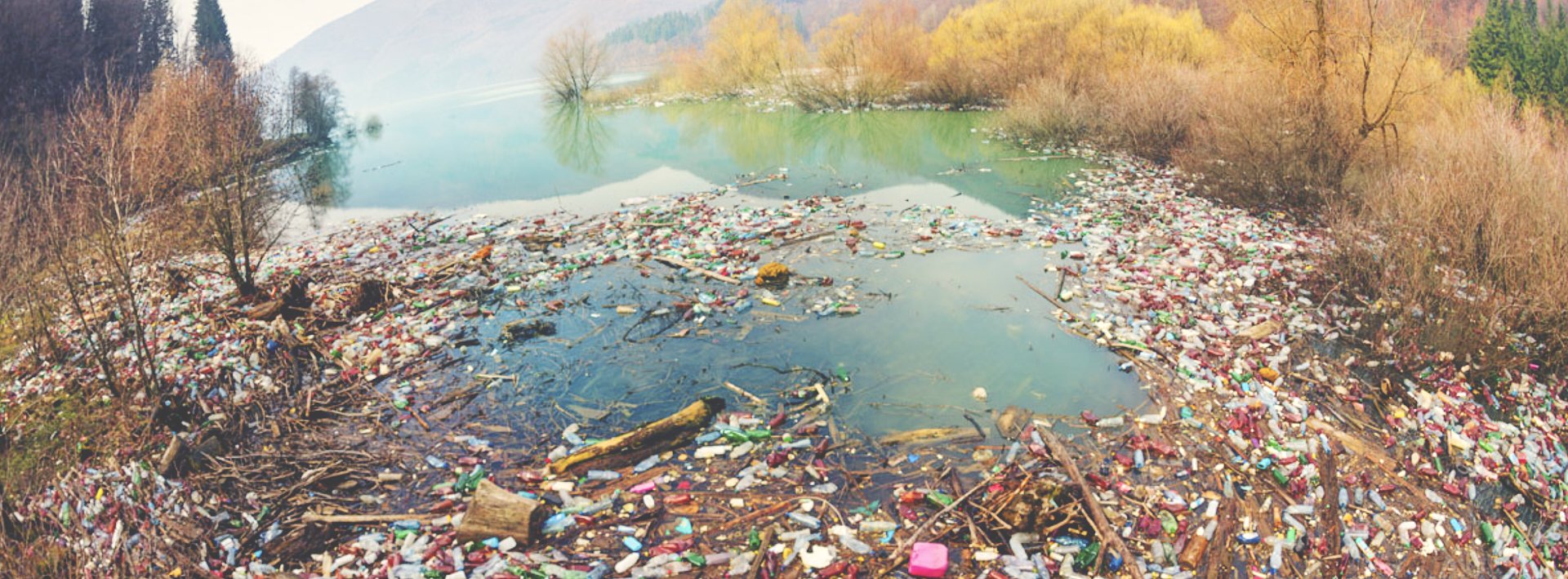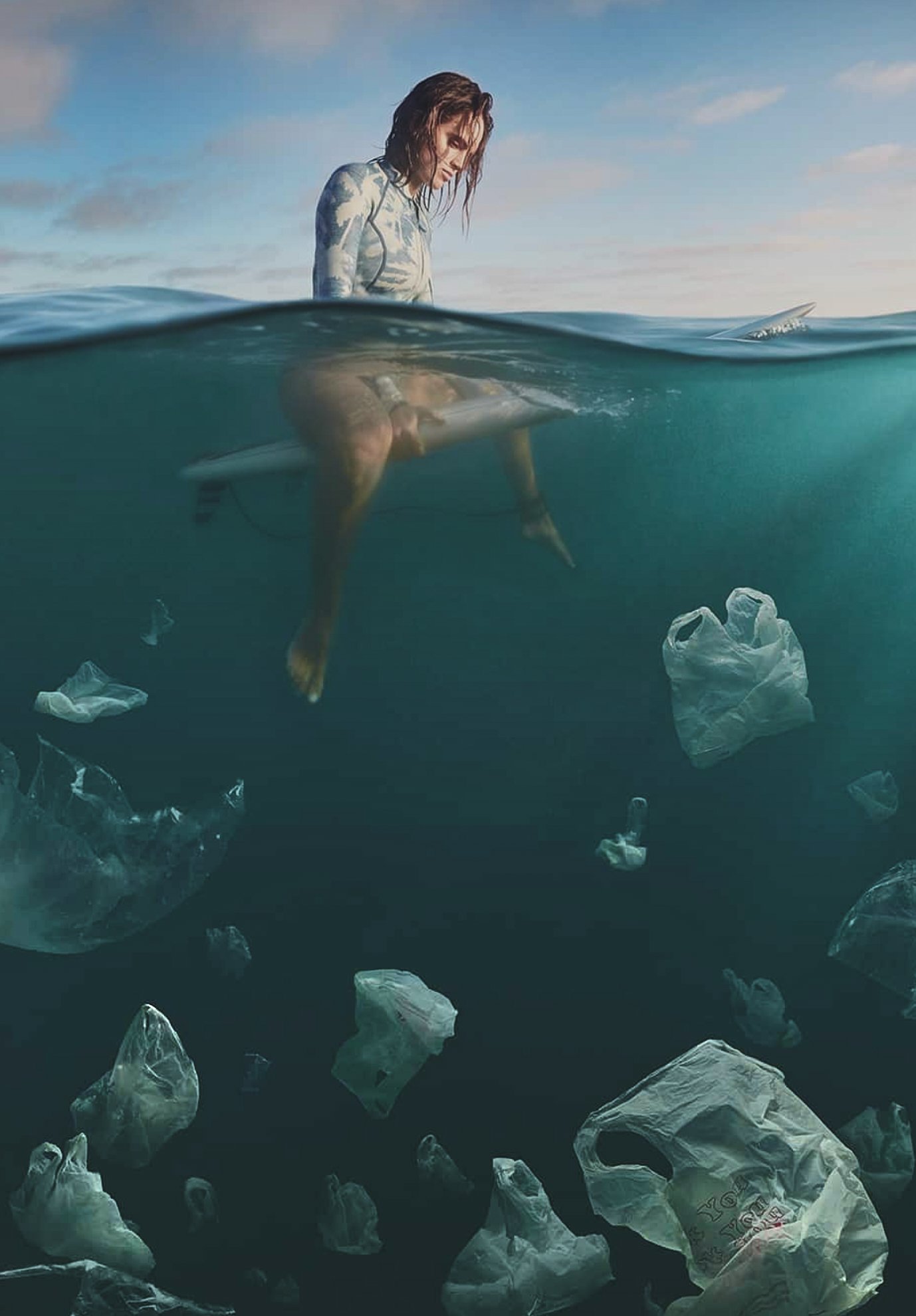#1 Single-Use Plastics
Did you know that if plastic pollution continues at the current rate and isn’t curbed by 2050, it will outweigh fish in our oceans pound for pound? Or, that 91% of plastic waste is not recycled? By implementing new habits and reducing our plastic use, we can have a substantial impact on our growing plastic crisis. Let’s learn more about the ill effects of single-use plastics on our planet.
What Are Single-Use Plastics?
Single-use plastics (or disposable plastics) are plastic items that are typically used once, then thrown away or recycled. Single-use plastics consist of plastic bags, soda and water bottles, plastic straws and coffee stirrers, in addition to most restaurant food containers and other packaging. The energy it takes to produce single-use plastics comes mostly from fossil fuels, which are our largest source of heat-trapping greenhouse gas emissions. By reducing our dependence on single-use plastics, we can greatly reduce the impact these products have on our environment. Check out these facts on single-use plastics.
Facts About Single-Use Plastics:
Over 1 million plastic bottles are sold every minute worldwide.
170 trillion plastic particles are afloat in the world’s oceans.
Plastic waste in our oceans is doubling every six years.
Consuming drinking bottled water has approximately 1,400 times more impact on ecosystems and is 3,500 times more costly in terms of resources.
Pollution from single-use plastics accounts for over 50% of the plastics found in landfills.
The U.S. is the biggest plastic polluter in the world.
40% of all of the plastic we produce is for food and beverage packaging – typically used once and then discarded.
Nearly 2 million single-use plastic bags are distributed worldwide every minute; out of those less than 1% are recycled.
500 million plastic straws are used every day in America.
Americans purchase almost 50 billion water bottles per year.
About 8% of the world’s oil production is used to make plastic products and to power the manufacturing of those items. That figure is projected to rise to 20% by 2050.
HOW CAN I MAKE AN IMPACT?
Action 1: Global Goodness
Stop using plastic grocery bags. Bringing your own reusable bags with you will save an average of 6-10 plastic bags weekly. Multiply that by 100 million people, and we’ll save 600 million to 1 billion bags every week!
Bring your own reusable cup for coffee, tea and soda.
Reduce your use of bottled water by carrying your own refillable water bottle.
Install a home water filter, or buy water in bulk from water delivery companies.
Shop in bulk. Larger quantities of goods require less packaging.
Reuse plastic bags. Most Americans have a stash of grocery bags; reusing them over and over again cuts the demand for additional production.
Action 2: Planet Protector
All of Action 1.
Choose cardboard over plastic. Cardboard is one of the most recycled products. By opting for cardboard over plastic, studies show that you are more likely to recycle.
Use your own container for leftovers and takeout. By bringing glass or Tupperware containers with you, you will prevent any need for throwaway to-go packaging.
Say no to plastic straws and plastic lids. Simply drink from the cup, or purchase a glass or bamboo reusable straw.
Purchase reusable produce bags. Many people have adopted the use of reusable grocery bags, but the majority of people still use plastic produce bags. Opt for eco-friendly options that you can reuse again and again.
Reuse ziplock baggies and plastic wrap. By cleaning them with dish soap and hanging them out to dry, you will not only save money, but also plastic.
Action 3: Earth Angel
All of Actions 1 & 2.
Say, no to plastic utensils. Bring a set from home, or purchase an eco-friendly travel set.
Prepare more meals at home. This is generally healthier for you and more cost effective, as well as saving to-go packaging.
Ask the businesses you frequent to reduce plastic use and switch to more eco-friendly packaging.
If you have a food service business, go to www.ecoproducts.com to find eco-friendly to-go containers.
Support plastic bag bans, polystyrene foam bans and bottle recycling bills by lobbying your local government to create laws that ban single-use plastics.
Choose to be an Ambassador for Change,and always Spread Love and Spread Light.
FACTS REFERENCES:
https://news.nationalgeographic.com/2018/05/plastics-facts-infographics-ocean-pollution/
https://www.nps.gov/commercialservices/greenline_straw_free.htm
https://www.reusethisbag.com/articles/25-reasons-to-go-reusable/
https://journals.plos.org/plosone/article?id=10.1371/journal.pone.0281596


